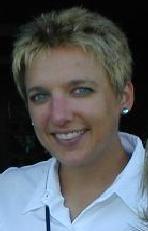

Awards
Research Interests:Next-generation programming language implementation and use: compilers, runtimes, cross-language interoperation, use of languages for parallel and distributed computing. Emerging systems such as cloud computing and emerging languages such as Python, Ruby, X10, and Lua.
What do you find particularly rewarding about your work? Students. Its a privilege to work with, teach, mentor, and encourage our future computer scientists -- at the undergraduate and graduate level. Their potential is unbounded and the field has so much to offer them. Its exciting to be part of their lives and to help them learn and grow.
Tell Us About The curriculum redesign you led: The computer science faculty felt it was time to reflect on how and what we were teaching our students, especially early in the program (their first two years). This is a pivotal point in their careers where many wonder if the major choice they made was the right one. It is important that we teach solid fundamentals and inspire confidence and excitement in our students during this time, so that they are able to succeed, excel, and be excited about pursuing the more advanced upper division and then careers (industry or research) in computer science.
We had been teaching the same topics in the same ways for many years despite many advances in technological and pedagogical practices. In addition, undergraduate students have changed -- most are more comfortable with and have a wider range of experiences with computers, than those who came before them. Moreover, a key strength of our department is in the contributions to, experience with, and expertise in computer science systems. Given all of these observations, it was time for a change.
With the help of new faculty hires -- those with experience and expertise that focused on teaching computer science to undergraduates, we embarked on studying and strategizing about how we might exploit our strength in systems and improve our undergraduate lower division curriculum so that it is tightly coupled and fluid as well as hands-on and project driven. Most importantly it must improves student (i) preparation and confidence in the fundamentals, (ii) understanding of the big picture (why what they are learning is important and impacts the world around them), (iii) and engagement in the learning process. To enabled this we spent 1.5 years interviewing students and faculty at our university and those around the world, as well as industry leaders (those that ultimately hire our students).
We then designed and implemented a new lower division curriculum based on our findings that is focused on problem solving with computers, that builds understanding of how to do so from the ground (the underlying machine) up, that employs modern software engineering practices and tools, that incorporates successful pedagogical practices, that uses real problems and examples as part of lecture and hands-on labs, and that is systems focused. We believe that our new courses will engage and encourage students, show them the importance and potential of computer science in affecting the world around us, and will lay the ground work for enabling students build the skills they need to land satisfying, secure, and well-paying employment or research opportunities in the future. Moreover, our implementation includes a plan to continuously evaluate and assess the efficacy of our changes so that we can evolve them as we learn how better to improve student experience and student success in our department and thereafter.
How and Why Did you get interested in leading this effort? After teaching and working with undergraduates for 8 years, it became apparent to me and others that the student population had changed -- but that our curriculum in the lower division had not changed with them. Moreover, I spoke with many many students directly about their educational experience and found that there were many opportunities to improve the program (even in small ways) that would have significant positive impact on many individuals. I wanted to help make these changes.
UCSB and our department has a tremendous amount to offer students given our cross-disciplinary and practical approach to computer science research -- that, at the same time, is grounded in solid theoretical foundations. I wanted to play a role in helping to create an undergraduate program that takes advantage of this and to help get the word out that this is the place to come if you are interested in becoming a very successful and happy, next-generation computer scientist.